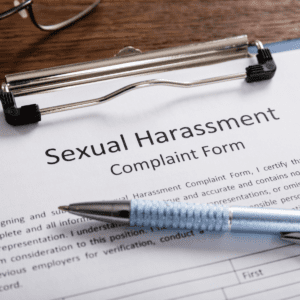The help of the private detective
It is not uncommon to see victims of harassment hiding in silence. Fear of retaliation, of not being believed, or having to fight – the reasons are often related to the difficulty of bringing evidence of harassment. Indeed, to accuse an individual without tangible proof can be particularly dangerous, especially when the stalker is a relative, a superior or a colleague appreciated by all. That’s why calling a private detective can help fix the situation.
Evidence of harassment admissible in court
An El Reno criminal defense private investigator solicited in a case of psychological or sexual harassment has a priority: to provide evidence that will allow the victim to put an end to this harassment, and to bring the case before a judge. Our process of private investigation in Oklahoma City, Oklahoma involves setting up a monitoring device, but also by soliciting personal and professional circles, who can attest to certain facts. It is important to use a professional private detective service like Oklahoma Judicial Process Server, which comes up with evidence that is actually admissible in court.

Investigation for psychological harassment
Internal investigation is probably one of the most important steps in the process of handling a complaint for psychological harassment, for all involved parties. It is after all to determine what really happened.
When the complaint has not been settled by a procedure such as mediation or the person against whom the complaint is made (the party complained against) denies the facts alleged against him, and if the complaint does not appear frivolous, the head of a policy against harassment at work can trigger an internal investigation.
The investigator first obtains from the person in charge a copy of the relevant documentation, including the current policy and the wording of the complaint. He checks whether each of the allegations is well defined. If this work has not been done beforehand by the person in charge of the file, the investigator draws up the list of the allegations with the complaining party and makes him approve it. He also informs the alleged party of what he is accused of.
Some useful principles
- Meetings must be private in order to respect confidentiality. It is, incidentally, reasonable to obtain in this respect a written commitment from the persons involved and from all the persons met.
- The investigation must be triggered quickly (the better the chance to know exactly what happened and solve the problem).
- The investigation report (introduction, description of the mandate, history, description of the complaint and allegations, methodology, description of the documentation reviewed, summary of the facts revealed, analysis and conclusion), must be signed and dated by the investigator and delivered confidentially to the manager.
- The investigator meets one by one with the parties directly involved as well as the identified witnesses, explains the progress of the process (taking statements, confidentiality, etc.). It may happen that the parties ask to be accompanied. Several policies allow this, however, providing that the role of coaches is limited. Accompanying persons are not and should not be called as witnesses and they simply act as observers.
- The investigator must be available, have a good knowledge of the concept of harassment at work and be credible so that the parties feel confident and respected.
- The inquiry agent must be well organized and not prejudiced. He must listen to the parties and witnesses and obtain relevant details. Each person met rereads and signs his declaration of which he can keep a copy. The investigator keeps the originals.
- The investigator should be subject to a protocol of conduct and investigate each allegation.
- The inquiry agent should not have a relationship of authority with the parties involved or be answerable to them.
- The person chosen to conduct the investigation, whether as an internal investigator or an external investigator appointed for this purpose (consultant) or as a member of an investigating committee, must possess personal qualities, knowledge, skills and relevant training and experience to complete the investigation.


